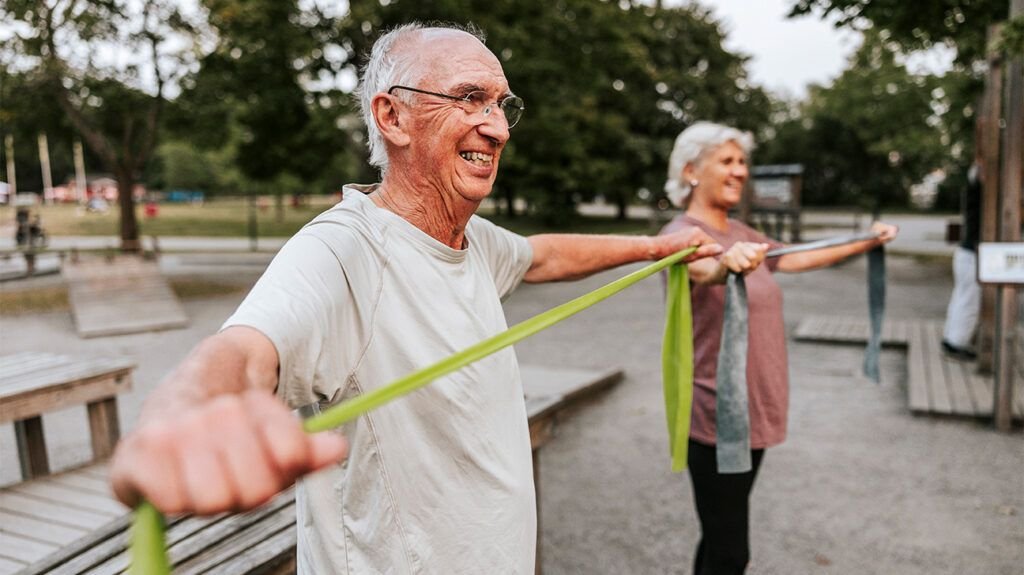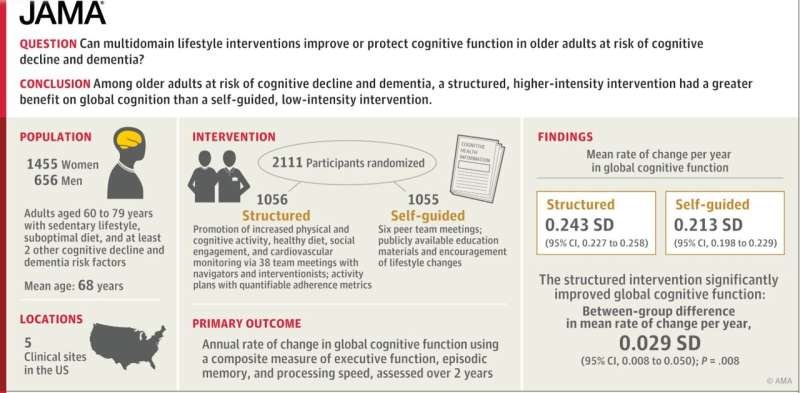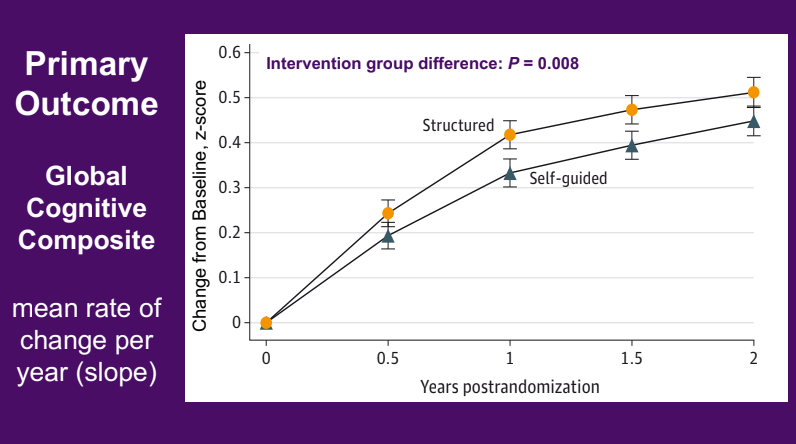Right now, more than 6 million Americans are living with Alzheimer’s disease or related forms of dementia. As the country’s population continues to age, the number is expected to nearly double by 2050. While a cure for Alzheimer’s still doesn’t exist, scientists are finding encouraging ways to slow down memory loss and keep the brain sharper for longer.
A new study has provided some of the strongest evidence yet that everyday lifestyle changes such as eating healthily, staying physically active, and keeping the brain engaged can make a significant difference.

Small changes, big results
Researchers followed more than 2,100 older adults, most of them in their 60s and 70s, who led fairly sedentary lifestyles. These weren’t people who were already exercising daily or doing brain-training games; they were regular individuals looking to make healthier choices.
Over a period of two years, the participants who made consistent changes such as exercising regularly, eating a brain-friendly diet, and challenging their minds showed noticeable improvements in thinking and memory. Even more importantly, they slowed down the typical age-related decline in mental sharpness.
The findings were presented at the Alzheimer’s Association International Conference in Toronto and published in the medical journal JAMA. The study is part of the US POINTER trial (U.S. Study to Protect Brain Health Through Lifestyle Intervention to Reduce Risk).
Why structured plans worked better
The research compared two groups: one that followed a structured program with clear guidance, and another that took a more self-guided, do-it-yourself approach.
The structured group saw significantly greater benefits. These participants met 38 times with coaches and team members over two years. They were given specific activity plans and regular check-ins to track their progress.
Their weekly routine included:
- Aerobic workouts (such as walking or biking) four times a week
- Resistance training twice a week
- Flexibility and stretching exercises twice a week
- Brain exercises through an online program called BrainHQ three times a week
- Following the MIND diet, which emphasises brain-healthy foods like leafy greens, berries, nuts, and whole grains
- Health monitoring twice a year to check blood pressure, cholesterol, and blood sugar
By sticking to this structured regimen, participants were able to keep their minds sharper and reduce the risk of cognitive decline.
The self-guided approach
The other group took a more relaxed approach. They received educational materials such as brochures and online resources and were encouraged to make lifestyle changes in ways that fit their daily routine.
They met for group sessions only six times over two years. These meetings were more about sharing encouragement and motivation rather than setting concrete goals.
While they still saw some benefits, their progress wasn’t as strong as those who followed the structured plan. To help encourage participation, they had yearly health checkups to monitor cardiovascular risk factors.
What this means for you
The study’s message is clear: lifestyle changes do work, and the more structured and consistent they are, the better the results.
“If you’ve ever wondered whether simple lifestyle tweaks really make a difference, this study shows that they absolutely do,” the researchers noted.
For those worried about memory loss or brain ageing, joining a structured program—or even creating a personal routine with clear goals and support—may help keep the mind younger for longer.
While there’s still no cure for Alzheimer’s, studies like this show that taking charge of your health today could help protect your brain tomorrow.







